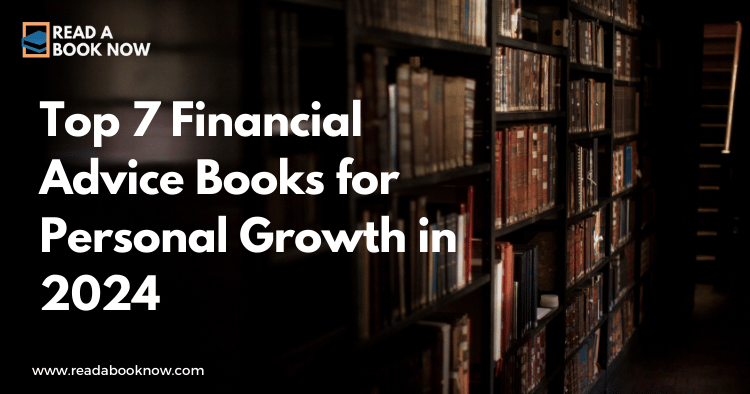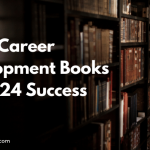Table of Contents
- Why Read Financial Advice Books?
- 1. “The Total Money Makeover” by Dave Ramsey
- 2. “Rich Dad Poor Dad” by Robert Kiyosaki
- 3. “Your Money or Your Life” by Vicki Robin and Joe Dominguez
- 4. “The Millionaire Next Door” by Thomas J. Stanley and William D. Danko
- 5. “I Will Teach You to Be Rich” by Ramit Sethi
- 6. “The Psychology of Money” by Morgan Housel
- 7. “Broke Millennial” by Erin Lowry
- Conclusion
- FAQs
Why Read Financial Advice Books?
Reading financial advice books is an excellent way to empower yourself with knowledge that can lead to smarter financial decisions. These books offer insights into budgeting, investing, saving, and overall financial wellness. Whether you’re a novice or well-versed in personal finance, there’s always something new to learn. Plus, many of these books are written in an engaging and relatable style, making complex topics easier to digest. In 2024, investing time in your financial literacy can set the stage for a prosperous future.
1. “The Total Money Makeover” by Dave Ramsey

Dave Ramsey’s “The Total Money Makeover” is a go-to guide for those looking to take control of their finances. The book lays out a straightforward plan that focuses on debt elimination, budgeting, and building wealth. Ramsey emphasizes the importance of living below your means and provides actionable steps, known as the “Baby Steps,” to achieve financial freedom.
Key Takeaways:
- Create an emergency fund
- Pay off debts from smallest to largest
- Invest 15% of your income into retirement
For more information, check out Dave Ramsey’s official website.
2. “Rich Dad Poor Dad” by Robert Kiyosaki

Robert Kiyosaki’s “Rich Dad Poor Dad” contrasts the financial philosophies of his two father figures—his biological father (poor dad) and his friend’s father (rich dad). This classic financial book introduces the concept of assets versus liabilities and encourages readers to think differently about money and investing.
Key Takeaways:
- Understand the importance of financial education
- Focus on acquiring assets that generate income
- Develop a mindset geared towards entrepreneurship
Explore more at Rich Dad’s Official Website.
3. “Your Money or Your Life” by Vicki Robin and Joe Dominguez

In “Your Money or Your Life,” Vicki Robin and Joe Dominguez present a holistic approach to personal finance that intertwines your values with your spending. This book encourages readers to rethink their relationship with money and to align their spending with their life goals.
Key Takeaways:
- Track your expenses to understand your spending habits
- Calculate your real hourly wage to assess your time-value relationship with money
- Create a plan for financial independence
For further insights, visit Your Money or Your Life.
4. “The Millionaire Next Door” by Thomas J. Stanley and William D. Danko

“The Millionaire Next Door” dispels the myth of the flashy millionaire. Instead, authors Thomas Stanley and William Danko uncover the habits and traits of those who have built wealth quietly and steadily. This book is packed with research and real-life examples of frugality and smart investing.
Key Takeaways:
- Most millionaires live below their means
- Wealth accumulation is more about behavior than income level
- Focus on financial independence over social status
Learn more about the authors’ research at The Millionaire Next Door.
5. “I Will Teach You to Be Rich” by Ramit Sethi

Ramit Sethi’s “I Will Teach You to Be Rich” is a straightforward, no-nonsense guide aimed at young adults. Sethi’s practical advice covers banking, saving, budgeting, and investing, all while maintaining a humorous tone that makes financial literacy accessible.
Key Takeaways:
- Automate your finances to save time and effort
- Invest in low-cost index funds
- Make conscious spending decisions aligned with your values
For more tips, visit I Will Teach You to Be Rich.
6. “The Psychology of Money” by Morgan Housel

Morgan Housel’s “The Psychology of Money” dives deep into the behavioral aspects of financial decisions. Housel argues that understanding our emotions and biases is just as critical as mastering financial strategies. This book is a valuable resource for anyone looking to grasp the human side of money management.
Key Takeaways:
- Wealth is what you don’t see (i.e., savings vs. spending)
- Be aware of your emotions when making financial decisions
- Long-term thinking is crucial for financial success
Discover more about this book at Morgan Housel’s website.
7. “Broke Millennial” by Erin Lowry

“Broke Millennial” by Erin Lowry is tailored for millennials navigating the often-confusing world of personal finance. Lowry provides practical advice on budgeting, debt, and investing with a relatable voice that resonates with young adults.
Key Takeaways:
- Understand the basics of credit scores and loans
- Create a budget that reflects your lifestyle
- Start investing early, even with small amounts
For more insights, check out Broke Millennial.
Conclusion
Investing time in financial education through these books can significantly impact your personal growth in 2024. Each of these authors provides unique insights and actionable tips that can help you navigate your financial journey with confidence. Remember, the most important investment you can make is in your own understanding of money.
FAQs
Q: How do I choose which financial book to read first?
A: Consider your current financial situation and goals. If you’re looking to get out of debt, “The Total Money Makeover” might be a great start. If you’re interested in investment strategies, “I Will Teach You to Be Rich” could be more suitable.Q: Are these books suitable for beginners?
A: Absolutely! Each book offers foundational principles that can benefit beginners and seasoned readers alike.Q: Can I find these books at my local library?
A: Yes! Most libraries carry popular titles in personal finance. You can also check online platforms like Libby for digital versions.Q: Are there any audiobooks available for these titles?
A: Yes! Many of these books are available as audiobooks through platforms like Audible.
Also look for recommendations on classic literature that can complement your journey to financial literacy, such as insights from 10 Must-Read Victorian Literature Classics You Can’t Miss which explore themes of social class and personal ambition, resonating with the financial lessons in these modern books.
Explore these recommendations and start your journey to financial literacy today! Happy reading!




